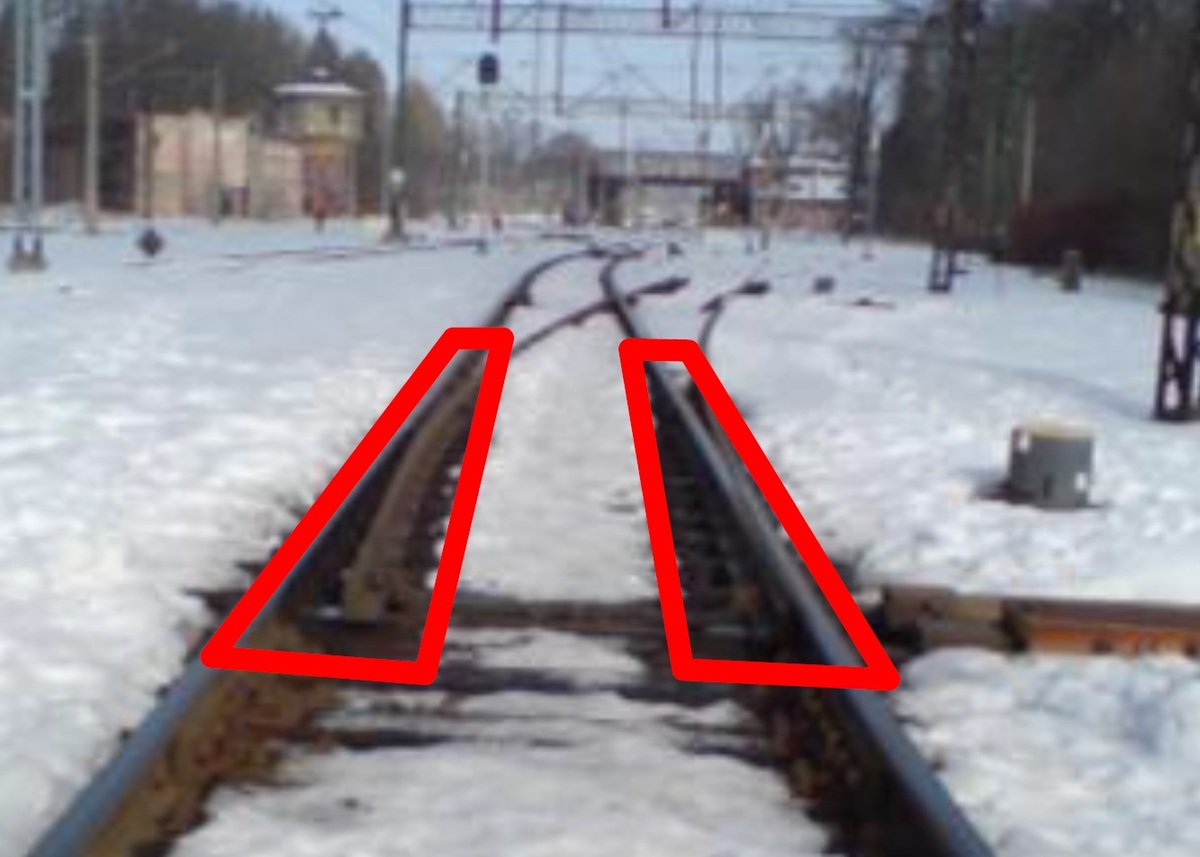PRACA ORYGINALNA
The use of thermal imaging studies in the diagnosis of railroad infrastructure elements
1
Wydział Transportu, Politechnika Warszawska, Polska
Zaznaczeni autorzy mieli równy wkład w przygotowanie tego artykułu
Data nadesłania: 02-10-2023
Data ostatniej rewizji: 30-11-2023
Data akceptacji: 04-12-2023
Data publikacji online: 09-12-2023
Data publikacji: 28-12-2023
Autor do korespondencji
Rail Vehicles/Pojazdy Szynowe 2023,3-4,40-46
SŁOWA KLUCZOWE
DZIEDZINY
STRESZCZENIE
The article presents selected results of thermovision measurements of EOR elements used for heating railway turnouts under the BRIK2/0036/2022 project. The tests were carried out for various types of railway turnouts (ordinary). The results made it possible to observe the temperature distribution for different con-struction solutions of turnouts. Further work is focused on preparing assumptions and criteria for developing an application supporting the interpretation of thermo-grams, which can be a tool supporting the diagnostics of EOR devices. The creation of a simple diagnostic tool that allows the evaluation and interpretation of the obtained thermogram may enable maintenance services to make the right decisions in the field of operation.
REFERENCJE (19)
1.
Brodowski D, Flis M. Eksperymentalna ocena bezstykowej metody ogrzewania w systemie elektrycznego ogrzewania rozjazdów kolejowych. Problemy kolejnictwa. 2022;194:9-15. https://doi.org/10.36137/1941P.
2.
Flis M. Contactless turnouts’ heating for energy consumption optimization. Archives of Electrical Engineering. 2020;69(1):133-145. https://doi.org/10.24425/aee.2....
3.
Flis M. Energy efficiency analysis of railway turnout heating system with a melting snow model heated by classic and contactless heating method. Archives of Electrical Engineering. 2019;68(3):511-520. https://doi.org/10.24425/aee.2....
4.
Id-1. Warunki techniczne utrzymania nawierzchni na liniach kolejowych. PKP PLK S.A. Warszawa 2015.
5.
Id-4. Instrukcja o oględzinach, badaniach technicznych i utrzymaniu rozjazdów. PKP PLK S.A. Warszawa 2015.
6.
Id-14. Instrukcja o dokonywaniu pomiarów, badań i oceny stanu toru. PKP PLK S.A. Warszawa 2005.
7.
Iet-1 Instrukcja eksploatacji i utrzymania urządzeń elektrycznego ogrzewania rozjazdów. PKP PLK S.A. Warszawa 2014.
8.
Kampczyk A, Gamon W, Gawlak K. Implementation of non-contact temperature distribution monitoring solutions for railway vehicles in a sustainability development system transport. Sensors. 2022;22:9624. https://doi.org/10.3390/s22249....
11.
Kukulski J, Wolff A, Walczak S. selected simulation and experimental studies of the heat transfer process in the railway disc brake in high-speed trains. Energies. 2023;16:4514. https://doi.org/10.3390/en1611....
12.
Oswald-Tranta B. Induction thermography for surface crack detection and depth determination. Appl Sci. 2018;8:257. https://doi.org/10.3390/app802....
13.
Rilo Cañás A-M, Sawczuk W. Thermal imaging test of the disk brake of a diesel multiple unit in field conditions. Rail Vehicles/Pojazdy Szynowe. 2020;3:28-36. https://doi.org/10.53502/RAIL-....
14.
Sawczuk W. The evaluation of a rail disc brake braking process by using a thermal camera. Measurement Automation Monitoring. 2015;61(6):265-270. https://yadda.icm.edu.pl/bazte....
15.
Sawczuk W, Merkisz-Guranowska A, Ulbrich D, Kowalczyk J, Rilo Cañás A-M. Investigation and modelling of the weight wear of friction pads of a railway disc brake. Materials. 2022;15:6312. https://doi.org/10.3390/ma1518....
16.
Skorupka Z. Użycie kamery termowizyjnej w badaniach hamulcowych materiałów ciernych. Journal of KONBiN. 2015;1(33). https://doi.org/10.1515/jok-20....
17.
Stypułkowski K, Gołda P, Lewczuk K, Tomaszewska J. Monitoring system for railway infrastructure elements based on thermal imaging analysis. Sensors. 2021;21(11):1-21. https://doi.org/10.3390/s21113....
18.
Usamentiaga R, Sfarra S, Fleuret J, Yousefi B, García DF. Rail inspection using active thermography to detect rolled-in material. Proceedings of the 2018 International Conference on Quantitative InfraRed Thermography. Berlin 25-29 June 2018. https://www.ndt.net/article/qi....
19.
Wołoszyn M, Jakubiuk K, Flis M. Analysis of resistive and inductive heating of railway turnouts. Przegląd Elektrotechniczny. 2016;4:54-57. https://doi.org/10.15199/48.20....
Udostępnij
Przetwarzamy dane osobowe zbierane podczas odwiedzania serwisu. Realizacja funkcji pozyskiwania informacji o użytkownikach i ich zachowaniu odbywa się poprzez dobrowolnie wprowadzone w formularzach informacje oraz zapisywanie w urządzeniach końcowych plików cookies (tzw. ciasteczka). Dane, w tym pliki cookies, wykorzystywane są w celu realizacji usług, zapewnienia wygodnego korzystania ze strony oraz w celu monitorowania ruchu zgodnie z Polityką prywatności. Dane są także zbierane i przetwarzane przez narzędzie Google Analytics (więcej).
Możesz zmienić ustawienia cookies w swojej przeglądarce. Ograniczenie stosowania plików cookies w konfiguracji przeglądarki może wpłynąć na niektóre funkcjonalności dostępne na stronie.
Możesz zmienić ustawienia cookies w swojej przeglądarce. Ograniczenie stosowania plików cookies w konfiguracji przeglądarki może wpłynąć na niektóre funkcjonalności dostępne na stronie.



